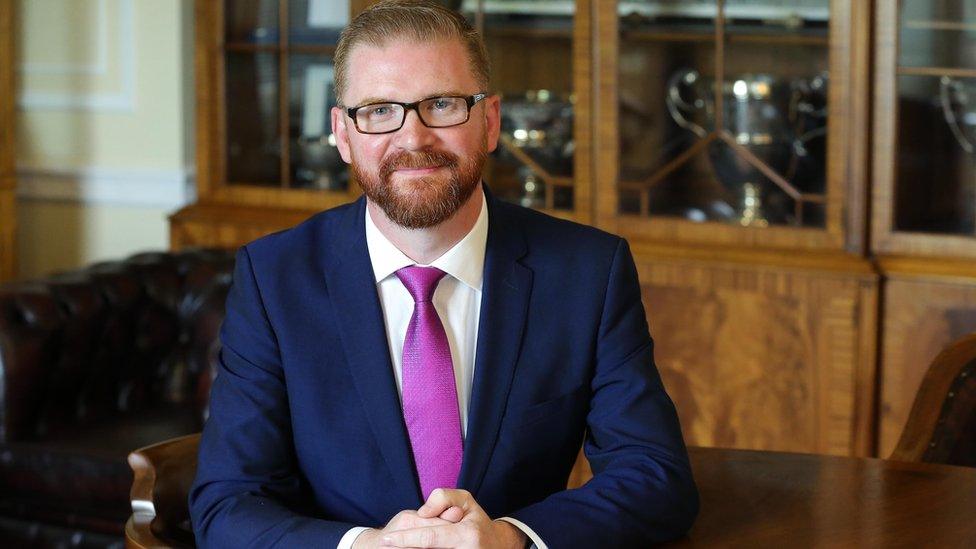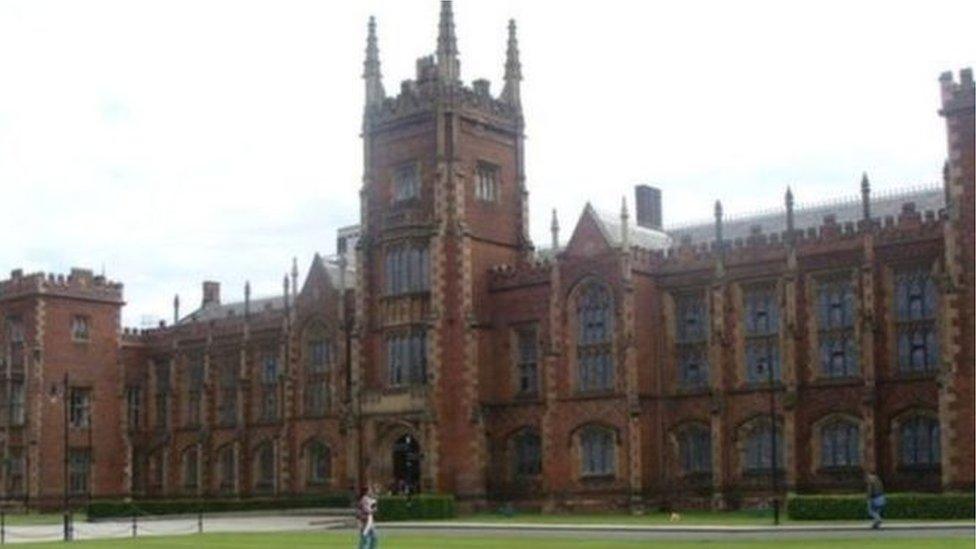NI Executive analysis: Simon Hamilton expected to deliver DUP's economic commitments
- Published

Simon Hamilton pictured shortly after being appointed economic minister
Simon Hamilton is only 39, but by the standards of this youthful executive he is a veteran having previously served as minister at both finance and health.
The department he takes control of is expanded compared to the last executive - it now has responsibility for skills and higher education, as well as economic development.
The fact it was the DUP's first pick suggests the party views it as the most strategically important role.
It puts Mr Hamilton in a position where he will be expected to deliver on his party's top manifesto commitment of "more jobs, rising incomes".
Those four words cover a multitude of issues including skills, the manufacturing slowdown and a weak export performance.
Among the first items in his in-tray will be student financing and university places.

Student fees at universities such as Queen's will be on the agenda for the new economy minister
If Northern Ireland is to benefit from cutting corporation tax, it is going to need to produce a reliable pipeline of skilled graduates.
But the universities are actually cutting places for local students because of falling budgets.
Thorny
So, the issue of raising fees to tackle the funding gap is on the agenda.
The DUP First Minister, Arlene Foster, did not rule out an increase in fees during the election campaign, though Sinn Féin is opposed.
Another thorny issue in his agenda is renewable energy - the Northern Ireland subsidy system has all but collapsed due to changes driven by Westminster.
The DUP manifesto has promised a review, to examine how to develop the sector "at least cost to consumers and business".
Mr Hamilton's department is also sitting on a plan to tackle economic inactivity - it was drawn up by the last executive but had no budget to take it forward.
Tackling this issue, which can be seen as "hidden unemployment", will be a factor in increasing Northern Ireland's employment rate.
There are also the chronic problems of low productivity and wages alongside a weak export performance.
The DUP manifesto hints at action there, mentioning an "up-scaling plan" and "better jobs".
Though, of course, if the UK votes to leave the EU, as Mr Hamilton's party would like, he will quickly find himself having to define and defend Northern Ireland's role in the new trading arrangements that the UK will have to negotiate.